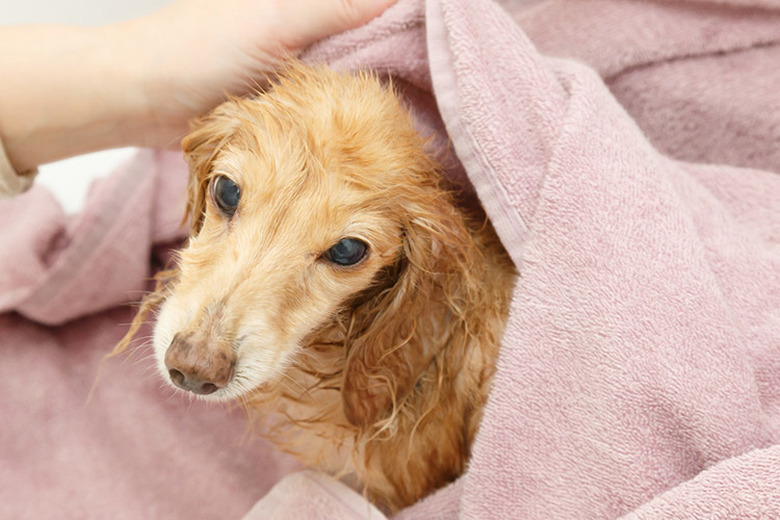Is Witch Hazel Safe For Dogs?
Though witch hazel carries many beneficial effects when applied topically, it's important to know that it can be toxic to dogs. The toxicity of the most commonly-used witch hazel product–astringent –depends on the formulation. The witch hazel plant itself, as well as teas and tinctures made from witch hazel can also pose a problem for your dog if ingested.
Witch Hazel Toxicity
Witch hazel contains tannins and other phenol-based acids localized in bark, leaves and twigs. Phenolic acids and tannins are corrosive and can be highly toxic, especially if a large quantity is consumed. After Scratchy eats witch hazel, he may have vomiting or diarrhea. Witch hazel ingestion can also result in metabolic problems, including kidney or liver failure.
Topical Witch Hazel
According to the Whole Dog Journal, witch hazel tightens skin, which reduces inflammation. This mechanism helps relieve discomfort from insect bites and hot spots. If you choose to use witch hazel to relieve your itchy pup, use only small amounts on Scratchy's skin — gently dabbing it only on the affected region — to limit risk of toxic exposure. Isopropyl alcohol, which is a common ingredient in astringent formulas, can cause vomiting, depression and coma in pets.. Ethanol and glycerin formulations are less likely to cause problems but may lead to vomiting and depression, depending on the quantity ingested. If your dog ingests the contents of a bottle, it's important to contact your veterinarian immediately.
By Elizabeth Muirhead
References
Whole Dog Journal: Herbal Remedies for Your Dog's Chronic Skin Inflammation
Kansas State University Research and Extension: Acorns and Oak Leaves: Bounty or Hazard?
Health Care Tips: Witch Hazel – Uses and Benefits
About the Author
Elizabeth Muirhead is a practicing veterinarian with an undergraduate degree in biological sciences. She has real-world experience with the husbandry, grooming, training and feeding a variety of household pets.
